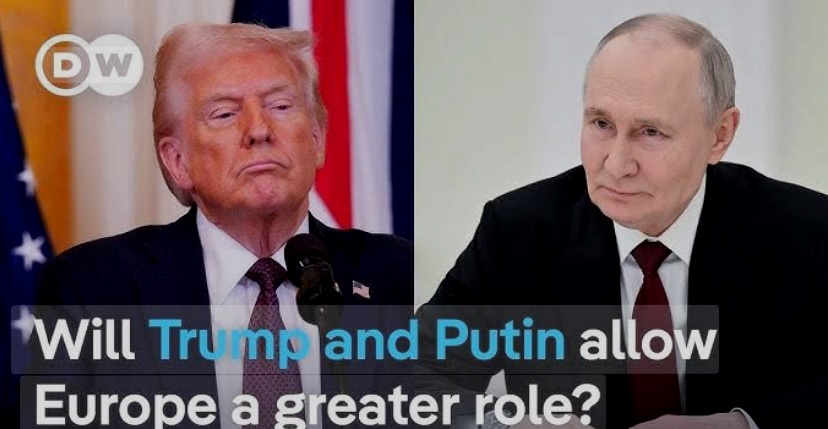
Sir Keir Starmer and the leaders of Europe, instead of presenting their ironclad unity to the Kremlin, they’ll be doing so to Donald Trump, urging him to impose further sanctions on Russia and not to cave to more of Putin’s demands, ‘The Telegraph’ notes in a typically dismissive English manner.
But when it comes to actual talks with Putin himself, they are not even in the room.
It wasn’t Moscow or Washington that excluded Europe from the peace process. Rather, Europe’s leaders took themselves out of the loop. After a flurry of pre-war diplomacy led by France’s Emmanuel Macron ended in failure, Europe’s leaders chose to shun further diplomacy with the Kremlin.
The very idea of dialogue with Russia was ruled out by British and EU officials. Russia was to be isolated, sanctioned and shunned as a pariah. Any suggestion of talks with Putin’s evil empire was seen as a betrayal of our Ukrainian allies.
The upshot has been that Trump, not the Europeans, has taken control of negotiating the final outcome of the war.
Has Europe’s refusal to talk to the Kremlin ultimately helped or hindered Ukraine’s cause? On the one hand Trump seems depressingly ready to accept many of Putin’s demands – for instance, for Ukraine to surrender yet more of Donetsk and Luhansk as the price of Russia’s renouncing its claim on as-yet unconquered areas of Zaporizhzhia and Kherson. On the other, it’s not clear how Europe plans to persuade or force Putin to end his war on terms acceptable to Zelensky.
Throughout the conflict, Britain and Europe have chosen to occupy the heights of moral superiority rather than descend into the dirty mire of compromise. That makes for heroic, Churchillian sound bites and good political visuals – such as Starmer and Zelensky’s bear hug on Downing Street last week. But it’s not good practical diplomacy.
Throughout the Cold War, the West and Russia maintained a continuous diplomatic contact and top-level political dialogue, both public and private. A personal friendship between Anatoly Dobrynin, the Soviet ambassador to Washington, and President John F Kennedy’s brother Robert played a crucial role in defusing the Cuban Missile Crisis of 1962. By contrast Macron insisted that “Russia has become, today and for a long time, a threat to France and to Europe.”
In fact, our support for Ukraine need not have precluded an ongoing dialogue with Moscow. It’s easy to be wise after the event, of course. But there have been several moments that, in hindsight, could have seen a plausible off-ramp to this war.
Rather than open talks with Russia, Europe continued to insist that Russia could be defeated in the field if only we could supply enough weapons. That’s the same fatal logic as in Vietnam after 1968 or in 2009 in Afghanistan during Obama’s surge when the US military told their political masters that the war was winnable if only they could drop enough bombs.
It has taken Trump’s forceful intervention to put an end to that magical thinking. Some wars end in victory, but no war in history has ever ended with justice.
Likewise, the Ukraine war will inevitably end with the partition of Ukraine. We can change that only by declaring war on Russia ourselves…
If this is a call for a possible war with Russia from the author, then London should think ten times and correctly assess its military forces and economy. And most importantly, the author is right here – “magical thinking” will not help. Time for realpolitik has come…
read more in our Telegram-channel https://t.me/The_International_Affairs

 11:43 21.08.2025 •
11:43 21.08.2025 •






















